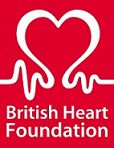Stages of the OHCAO registry

The project is a prospective observational study set in the UK NHS ambulance services, and has been going since 2012. It is split into 3 phases.
First stage (2012-2013) - Feasibility study
All UK ambulance services were surveyed to establish which patient, process and outcome variables, relevant to cardiac arrest are collected, stored and what data security systems are for each service. Anonymous samples of key variables were securely transferred to the Coordinating Centre at Warwick University, that enabled maps of current processes to be produced. This led to the exploration of the feasibility of changing to a unified approach of data management processes within UK ambulance services.
Following these surveys, the study’s Steering Committee endorsed a set of core and supplementary outcome variables for collection in the main study. Core variables were prioritised based on their importance and feasibility of data collection, and their selection was informed by the Utstein recommendations for OHCA reporting1, and will capture case mix, structure, process and outcomes.
Second stage (2013-present) - Prospective collection of information about OHCAs in the UK for the OHCAO registry
Case records of patients with suspected cardiac arrest are identified by ambulance service personnel through the following screening processes:
- Search case records for clinical or treatment variables that are likely to occur in cardiac arrest, for example, zero pulse/zero respiratory, defibrillation;
- Search case records for cardiac arrest;
- Search 999 call database/dispatch systems for cardiac arrest dispatch codes
Information is uploaded to the registry by each Ambulance Service using a secure weblink. Access to this weblink is restricted to members of NHS ambulance personnel responsible for the information. This service is only available to NHS Ambulance Trust Services who have Agreements in place with University of Warwick for data transfer related to the OHCAO project records are then screened for their eligibility. Only data that has been mapped and transformed, and agreed by the ambulance trust will be imported . All other data is ignored, never copied, stored and deleted later.
Inclusion criteria:
- Out-of-hospital cardiac arrest
- Resuscitation is attempted commenced/continued by ambulance service
Exclusion criteria:
- Arrest during inter-hospital transfer or on acute NHS hospital trust premises
- Clear evidence of death defined by the JRCALC recognition of life extinct criteria
Variables being collected include:
- Patient identifiable information
- Patient characteristics
- Event data/clinical information
- EMS response variable/interventions
- Outcome variables
We anticipate to obtain information on over 25,000 OHCAs that occur in the UK every year. We will use descriptive statistics to summarise patient characteristics, clinical variables, EMS dispatch characteristics, EMS process variables, location and cardiac arrest event rate. Data will be presented for the entire population, the Utstein comparator group (witnessed arrest, bystander CPR, shockable rhythm) and broken down by ambulance service.
We are interested in the outcomes of ROSC and patient survival to hospital discharge and the factors that will improve them. In collaboration with the Steering Committee and collaborating ambulance services we will agree on the content of quality improvement reports that will be provided for ambulance services. Initial reports will focus on data completeness, timeliness and quality. Subsequent reports will summarise demographic, patient, process and outcome variables. Data will be presented in summary form and broken down by ambulance service. Identification of ambulance service in any reports will be by unique code (known only to the ambulance service concerned). Reports will be sent to the principal investigator at each ambulance service and members of the Steering Committee.

Project Overview
Information for Health Professionals
Information for the public
Publications
Interactive Map
Search the OHCAO website:
Enquiries:
Tel: 02476 572725
Email: ohcao@warwick.ac.uk
Address:
Warwick Clinical Trials Unit
Warwick Medical School
University of Warwick
Gibbet Hill Road
Coventry
CV4 7AL


